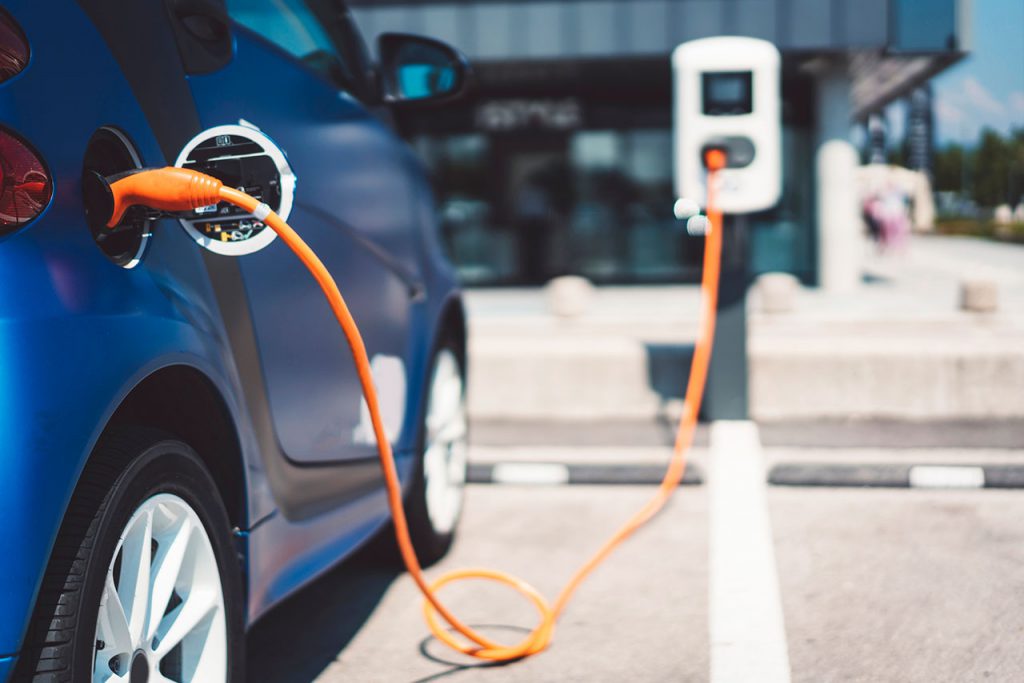Electric-vehicle manufacturing may rev up already busy industrial market

Some of the most high-profile warehouse — and economic development — deals in the U.S. today are in the electric vehicle space.
Whether it’s Tesla Inc.’s (NASDAQ: TSLA) 4-million-square-foot manufacturing facility in Austin, Texas; Ford Motor Co.’s (NYSE: F) three planned battery factories totaling $11 billion in investment and an upcoming Toyota Motor Corp. (NYSE: TM) U.S. battery-production center, it’s clear the market is having a moment right now.
Although the billion-dollar investments churn the most headlines, there are plenty of smaller, younger players elbowing their way into the space, too. British EV manufacturer Arrival Ltd. is building electric-vehicle “microfactories” in the Charlotte, North Carolina, market, and Newark, California-based Lucid Group Inc. recently kicked off production at its first EV factory in Casa Grande, Arizona.
So what does the growth of electric-vehicle manufacturing in the United States mean for the industrial sector?
Doug Ressler, manager of business intelligence at commercial real estate research firm Yardi Matrix, said the sector remains in an embryonic state but expects it to grow significantly, especially in the next 12 to 18 months. Demand will likely start to stabilize after that, he added.
Automakers in the EV space are planting facilities around the country, but a few geographic areas stand out. Some companies are reinvesting in the Rust Belt while Arizona and Texas, popular state for such projects historically, continue to see a big share of investment. Areas in the Southeast are also benefitting, such as Memphis, Tennessee, where Dearborn, Michigan-based Ford and SK Innovation Co. Ltd. out of South Korea are investing $5.6 billion at 3,600-acre campus to produce Ford’s F-series all-electric trucks.
“All of that (growth) is going to aid the development of not only industrial, but also residential that clusters around that industrial (space),” Ressler said.
Aaron Ahlburn, innovation lead of global logistics at Avison Young, said in an email the EV market has been around for quite some time but there’s still not enough data to say with certainty how much of the industrial market is comprised of EV manufacturers.
“Global electric vehicle sales are growing exponentially, but the broad impact on the U.S. industrial real estate market, despite the foothold from a headline-making company like Tesla, is only just developing,” Ahlburn said.
He said there’s a complex interplay between domestic and foreign production of electric vehicles, as well as demand. The technology for EV and scope of manufacturing is still evolving, he added.
Still, with corporate sustainability and carbon-zero initiatives becoming more en vogue, Ahlburn said that may help accelerate the EV manufacturing space.
Automotive projects have historically been lauded as a top prize in economic development because of their immense investment, number of jobs and, perhaps most importantly, their ability to spur a local supply chain. Suppliers and manufacturers within and adjacent to the automotive industry want to locate near big auto plants, spurring more jobs and investment.
Such a trend will likely be observed in the EV space, too, Ressler said. It’s already happening now in Texas, with new companies locating near Tesla’s upcoming plant, and taking down blocks of industrial space.
Ahlburn said it will be interesting to see whether Tesla’s headquarters move to Texas, and expected plans to increase manufacturing there, will lead to more purpose-built electric-vehicle manufacturing properties around the country.
While new demand for industrial space and competition for tracts seems inevitable, a lot of automakers are repurposing traditional automotive facilities for EV manufacturing. Detroit-based General Motors Co., for example, said this summer it would to invest $35 billion in EV and autonomous vehicle technology through 2025, including converting existing vehicle factories to EV plants.
And Plymouth, Michigan-based electric vehicle manufacturer Rivian Automotive Inc. converted a former Mitsubishi Motors Corp. plant in Normal, Illinois, to manufacture EV trucks and SUVs.
While EV automakers could, perhaps, be more efficient with their footprint than traditional auto plants, given the tech-heavy and autonomous nature of their product, those companies still frequently require a huge amount of real estate and land, Ahlburn said.
